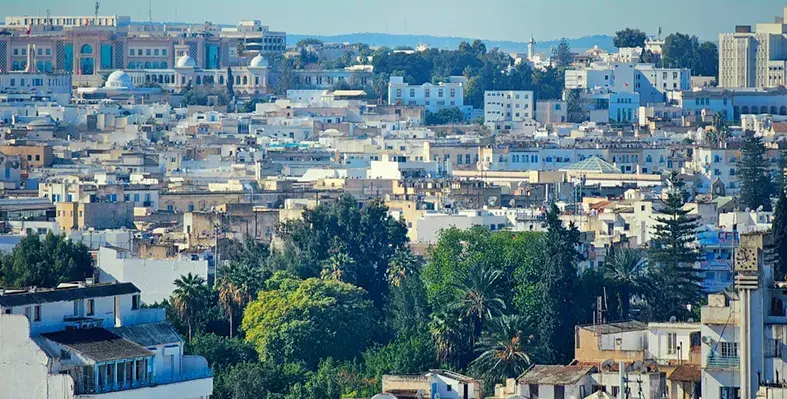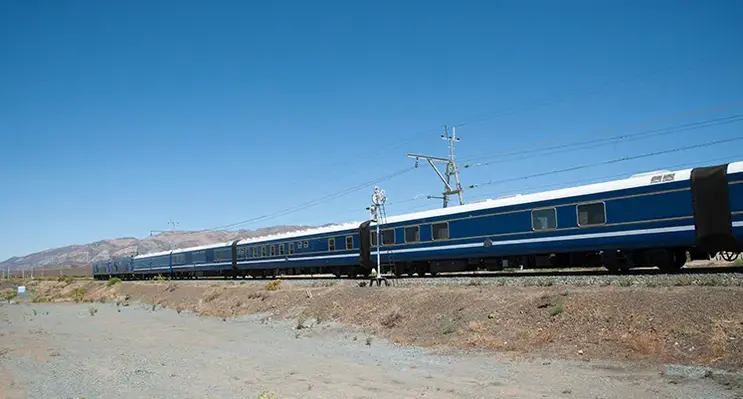The European Bank for Reconstruction and Development (EBRD) has entered into a strategic partnership with Tunisie Telecom, Tunisia’s national telecommunications operator, to strengthen the country’s digital infrastructure and support the company’s long-term transformation
Under the agreement, the EBRD will provide a development-linked loan of up to €190 million (approx. US$205mn), to be released in four tranches, starting with an initial committed tranche of €50 million (approx. US$54mn). The financing will support a multi-year investment programme aimed at upgrading Tunisie Telecom’s mobile access network from 4G to 5G, expanding its fibre footprint, and connecting up to 200,000 households through fibre-to-the-home services. The programme also includes modernisation of the operator’s backbone and core networks, alongside targeted investments in energy efficiency and energy generation.
The financing package will further enhance Tunisia’s international connectivity by supporting Tunisie Telecom’s connection to the MEDUSA submarine cable, a Mediterranean subsea network backed by the European Union (EU) and led by Spanish firm AFR-IX. Spanning more than 8,000 km, MEDUSA links nearly 13 countries across Europe, North Africa and the Middle East.
The EBRD loan is supported by an €11 million (approx. US$12mn) EU grant provided through the Neighbourhood Investment Platform. This includes an investment grant for core network upgrades and cybersecurity improvements, as well as a technical assistance grant to deliver a comprehensive transformation programme for the national operator.
That transformation programme is designed to address key areas of corporate development, including workforce skills, sustainability, energy efficiency, digitalisation, cybersecurity and strategic reform. It is expected to enhance Tunisie Telecom’s operational efficiency, resilience and competitive positioning.
Notably, this marks the first time since 2012 that the EBRD has extended financing to Tunisia’s public sector without a sovereign guarantee. The loan is also structured as a development-linked facility, meaning interest rates will be adjusted based on progress against agreed transformation milestones, including sustainability targets and broader state-owned enterprise reform objectives.
The project reflects the EBRD’s integrated approach to Tunisia’s digital sector and builds on its collaboration with the Tunisian government, the Ministry of Communication Technologies and the national telecom regulator to advance digital services, sector competitiveness and innovation.
EBRD president Odile Renaud-Basso said, “We are very proud to support a key sector for Tunisia at a time when digitalisation and connectivity are of very high and ever-increasing importance. Partnering with the Tunisian government and the EU, we are contributing to the modernisation of Tunisie Telecom and the digital transformation of the country. This upgrade will also enhance connectivity to Europe and ultimately help position the country as a key digital hub across the Mediterranean region and in Africa.”
“We are pleased to partner with the EBRD in a move that underscores international confidence in Tunisia’s economy and supports our vision for advancing the telecommunications sector. Through modernised digital infrastructure, improved international connectivity and new technologies, such as 5G and fibre, we aim to enhance services in education, healthcare and smart cities, bridging the digital divide and driving Tunisia’s digital economy forward," added Lassaad Ben Dhiab, CEO of Tunisie Telecom.
EU ambassador to Tunisia Giuseppe Perrone commented, “Today we mark a landmark investment in Tunisia’s digital future. Through our joint EU-EBRD support for Tunisie Telecom, we are accompanying the company’s modernisation plans by reinforcing its critical infrastructure in line with the National Digital Strategy, accelerating 5G rollout and connecting Tunisia to the MEDUSA submarine cable – a Global Gateway flagship. This is more than a project: it is a concrete step toward fast, secure and future-proof connectivity across the Mediterranean, strengthening the EU–Tunisia partnership launched in 2023 for the benefit of our citizens.”
The EBRD financing is backed by a first-loss guarantee from the European Fund for Sustainable Development Plus (EFSD+), delivered through its Digital Transformation Platform, an EU flagship initiative supporting digital inclusion and sustainable growth in partner countries. The guarantee aligns the project with the EU Global Gateway strategy, supporting high-speed broadband deployment, digital solutions and inclusive economic development in Tunisia and the wider region.


























